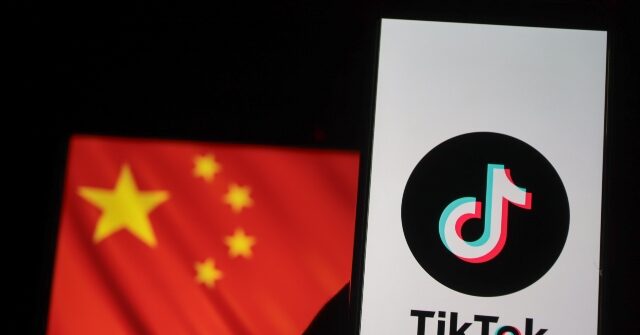The U.S. Supreme Court ruled unanimously on Friday, upholding the U.S. sell-or-ban legislation on TikTok, set to be enacted this Sunday.
“We are conscious that the cases before us involve new technologies with transformative capabilities. This challenging new context counsels caution on our part,” the Supreme Court ruled on Friday. “As Justice Frankfurter advised 80 years ago in considering the application of established legal rules to the ‘totally new problems’ raised by the airplane and radio, we should take care not to ‘embarrass the future.’”
The Court went on to say, “A TikTok user’s content feed is also shaped by content moderation and filtering decisions. TikTok uses automated and human processes to remove content that violates the platform’s community guidelines.”
“TikTok Inc.’s ultimate parent company is ByteDance Ltd., a privately held company that has operations in China. ByteDance Ltd. owns TikTok’s proprietary algorithm, which is developed and maintained in China,” the Court noted.
“ByteDance Ltd. is subject to Chinese laws that require it to ‘assist or cooperate’ with the Chinese Government’s ‘intelligence work’ and to ensure that the Chinese Government has “the power to access and control private data” the company holds,” the Court added.
Supreme Court justices also noted that U.S. lawmakers have repeatedly expressed national security concerns regarding the relationship between China and TikTok.
“In August 2020, President Trump issued an Executive Order finding that ‘the spread in the United States of mobile applications developed and owned by companies in [China] continues to threaten the national security, foreign policy, and economy of the United States,’” the Court said in its Friday ruling.
The Court added that the record reflects that China “has engaged in extensive and years long efforts to accumulate structured datasets, in particular on U. S. persons, to support its intelligence and counterintel operations.”
“We are mindful that this law arises in a context in which national security and foreign policy concerns arise in connection with efforts to confront evolving threats in an area where information can be difficult to obtain and the impact of certain conduct difficult to assess “ the justices said.
The Court went on to say, “Furthermore, as we have already concluded, the Government had good reason to single out TikTok for special treatment, adding, “The validity of the challenged provisions does not turn on whether we agree with the Government’s conclusion that its chosen regulatory path is best or ‘most appropriate.’”
“We are especially wary of parsing Congress’s motives on this record with regard to an Act passed with striking bipartisan support,” the Court noted.
As the Court noted, Congress has enacted the Protecting Americans from Foreign Adversary Controlled Applications Act to address this threat.
“There is no doubt that, for more than 170 million Americans, TikTok offers a distinctive and expansive outlet for expression, means of engagement, and source of community,” the Court said. “But Congress has determined that divestiture is necessary to address its well-supported national security concerns regarding TikTok’s data collection practices and relationship with a foreign adversary.”
“For the foregoing reasons, we conclude that the challenged provisions do not violate petitioners’ First Amendment rights,” the Supreme Court asserted.
The Court acknowledged that an effective ban on a social media platform with 170 million U.S. users “burdens those users’ expressive activity in a non-trivial way.”
“At the same time, a law targeting a foreign adversary’s control over a communications platform is in many ways different in kind from the regulations of non-expressive activity that we have subjected to First Amendment scrutiny,” the justices said.
“While we find that differential treatment was justified here, however, we emphasize the inherent narrowness of our holding. Data collection and analysis is a common practice in this digital age,” the Court added. “But TikTok’s scale and susceptibility to foreign adversary control, together with the vast swaths of sensitive data the platform collects, justify differential treatment to address the Government’s national security concerns.”
The case is TikTok v. Garland, No. 24-656 in the Supreme Court of the United States.
Alana Mastrangelo is a reporter for Breitbart News. You can follow her on Facebook and X at @ARmastrangelo, and on Instagram.



